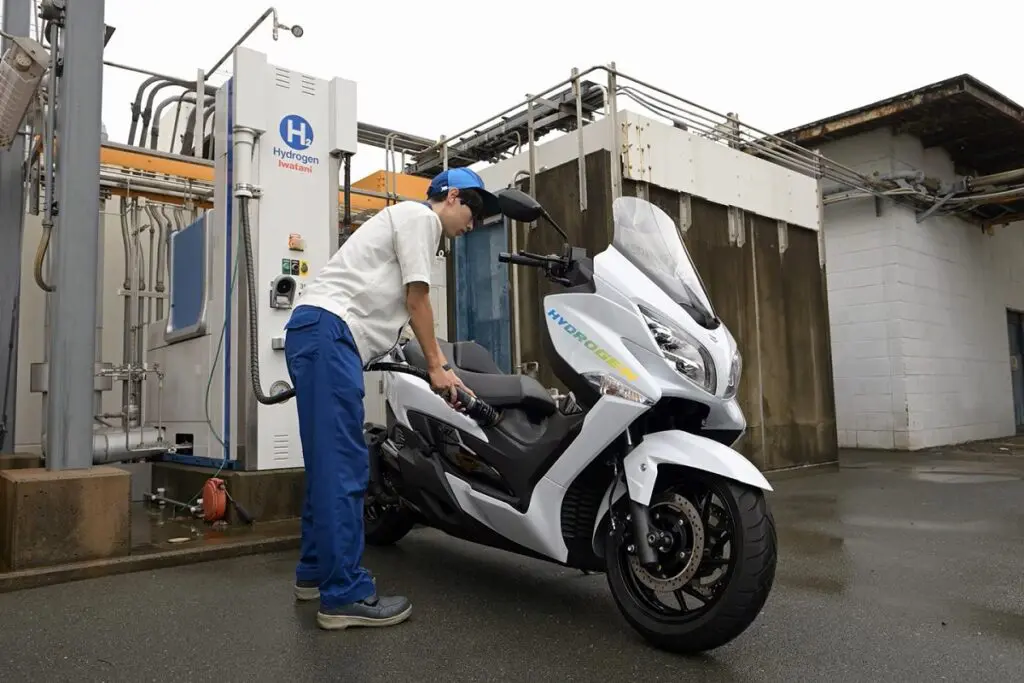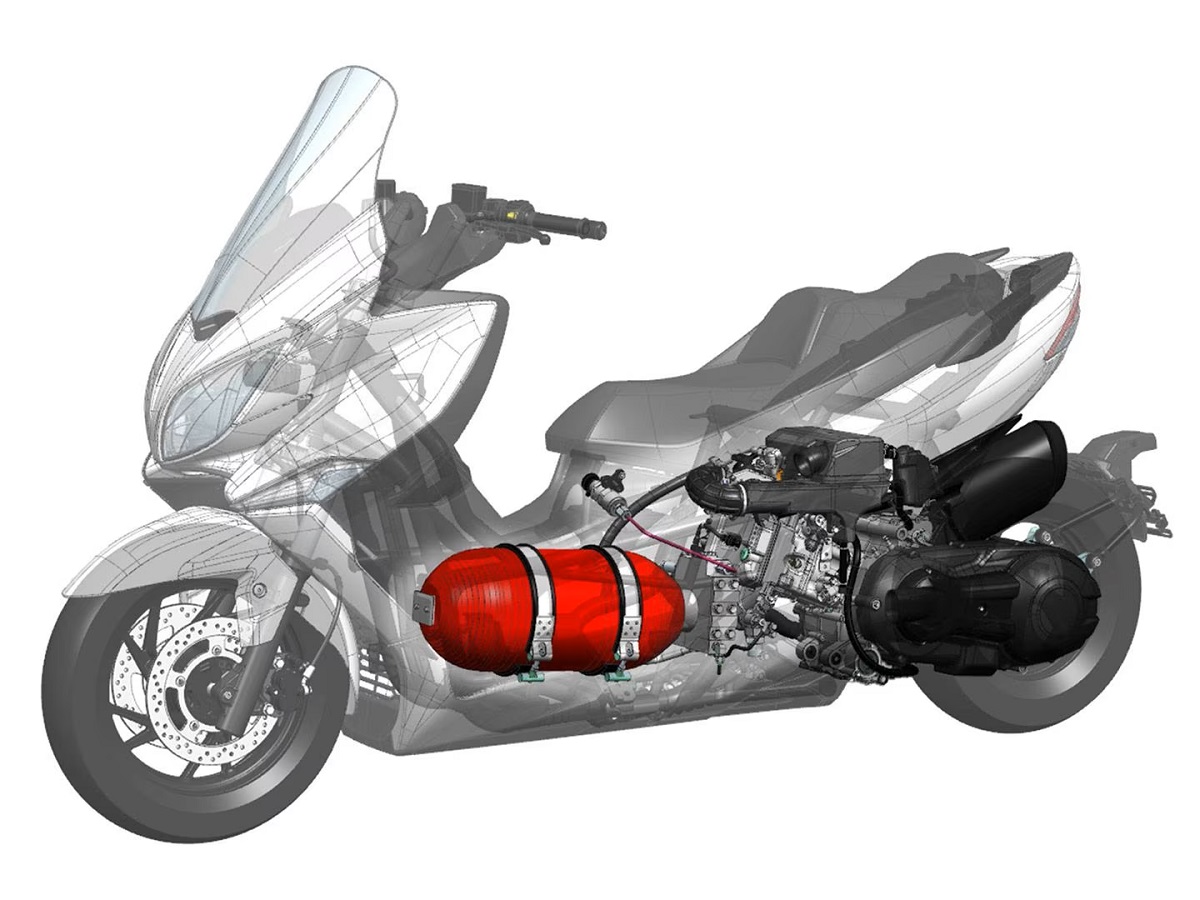Suzuki has been working with hydrogen fuel cells since 2007, when it introduced the conceptual Crosscage motorcycle. At the same time, it partnered with the British company Intelligent Energy, which developed the fuel cell system used in all subsequent prototypes. Fuel cells promise the benefits of environmentally friendly electric power, but with the ability to quickly refuel hydrogen tanks instead of needing to recharge batteries. However, earlier this year, Suzuki became a member of the HySE collaboration – along with Honda, Yamaha, and Kawasaki – to develop hydrogen-powered combustion engines for small vehicles, including motorcycles. Specifically, Suzuki’s role in the organization is “Study of elements on functionality, performance, and reliability of hydrogen-powered engines.” This is where the new Burgman prototype comes in.
It is built around a standard Burgman 400 scooter, although the engine requires some substantial modifications to run on hydrogen instead of gasoline. The details of these changes are not yet known, but are likely to include direct fuel injection.

To make room for this deposit, the swing arm and the engine, which are a single unit, are moved back about 8 inches, giving the prototype its unusually long wheelbase. The upside is that the bike does not lose the storage space under the seat, as happened with fuel cell prototypes.







